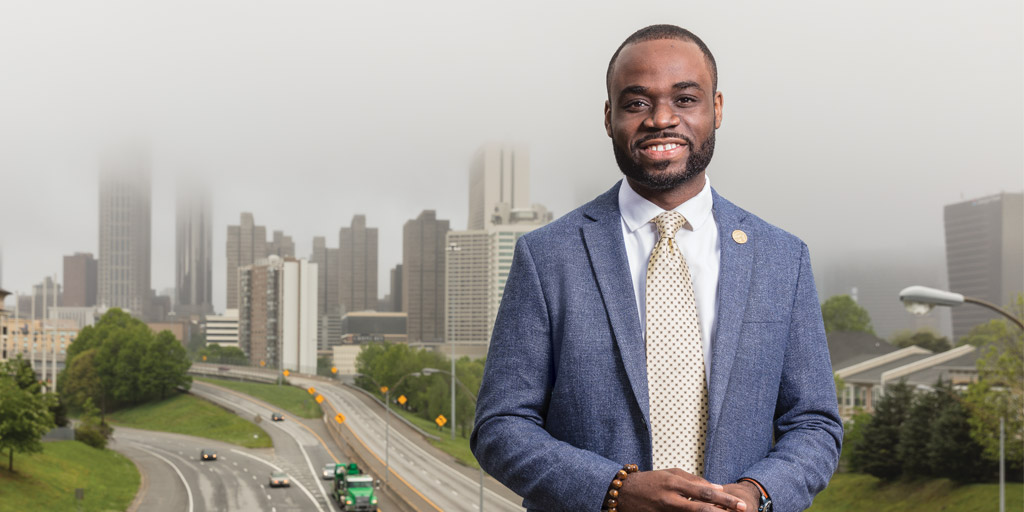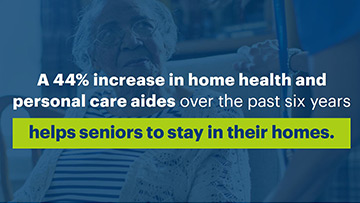Best Uchehara was born in Imo State, Nigeria, immigrating with his family to the United States when he was 6. "In Nigeria, my father was a public servant and my mother was a community nurse, so the importance of service was instilled in me from a young age," he said. "When I was little, I would walk around telling everyone I wanted to be a 'doctor policeman' when I grew up."
Uchehara was raised in East Point, Georgia, a suburb of Atlanta, and he stayed in the area to attend Morehouse College. "I was inspired by the many amazing Morehouse graduates, especially Dr. Martin Luther King, Jr.," he said. "I also fell in love with the college's mission, which is to develop minds to lead lives of leadership and service."
At Morehouse, Uchehara followed a pre-med track, majoring in biology. He received a scholarship from the Jackie Robinson Foundation that was funded by the United Health Foundation's Diverse Scholars Initiative. Uchehara said the financial support gave him the flexibility to spend time volunteering, including co-founding the Insight Initiative, a student-led volunteer organization that supports local elementary students through mentorship and tutoring.
Another major benefit of the scholarship, he said, was attending the annual Diverse Scholars Initiative Forum in Washington, D.C. "It was an amazing experience to be with so many brilliant students and leaders in the health care industry," Uchehara recalled.
"The most memorable part for me was going to the Capitol and speaking with senators and house members who were working to influence health care policy."
Uchehara graduated from Morehouse in spring 2018 and will attend Duke University School of Medicine in the fall. Over the summer, he will complete an internship at UnitedHealth Group's Optum business. "The business and management side of health care has always been intriguing to me," he explained. "I'm strongly considering getting an MBA when I'm at Duke because I can definitely see myself in the business management of health care."
In the future, Uchehara hopes to be a leader in the effort to reduce health care disparities, especially for immigrant communities. "As an immigrant myself, I know that immigrants are often shoved to the margins of society," he said. "Many have serious health concerns that need to be addressed and I would like to help do that."
Uchehara believes that cultural competence is one of the most important elements of an effective health care system. "Physicians need to show that they understand the different customs, cultures and religions of their patients," he said. "Trust happens when patients understand that providers have their best interests at heart, and cultural competence can make all the difference."



Share This Story